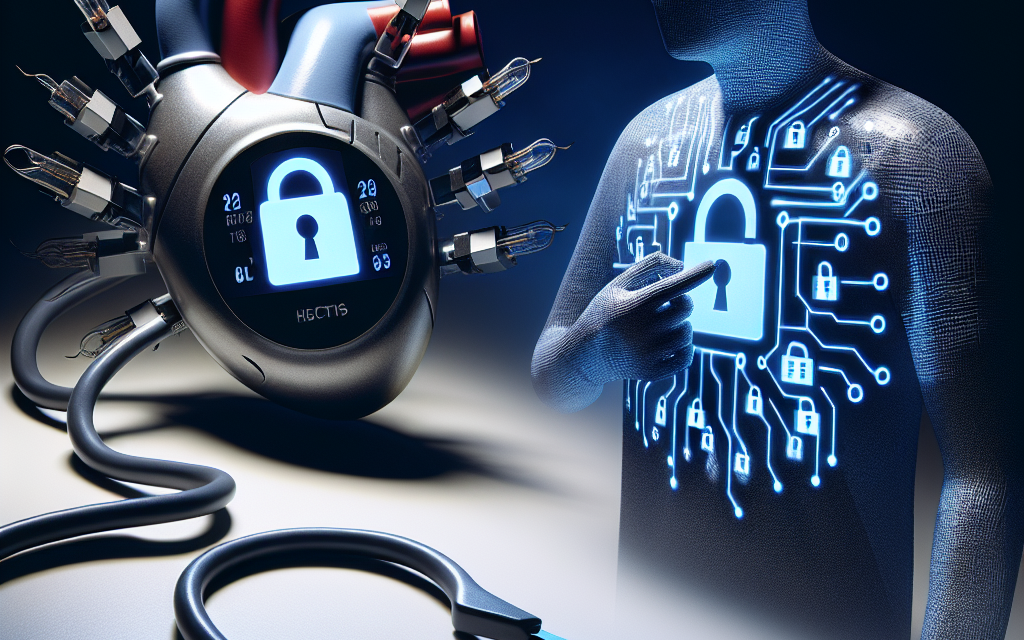Democrats Warn HHS Layoffs May Threaten Medical Device Cybersecurity
The intersection of healthcare and technology has never been more critical, especially as the world becomes increasingly reliant on medical devices. However, recent warnings from Democratic lawmakers regarding potential layoffs at the Department of Health and Human Services (HHS) have raised alarms about the implications for medical device cybersecurity. This article delves into the multifaceted issues surrounding these layoffs, the importance of cybersecurity in medical devices, and the potential consequences for patient safety and public health.
The Current Landscape of Medical Device Cybersecurity
Medical devices, ranging from pacemakers to insulin pumps, are integral to modern healthcare. However, as these devices become more interconnected and reliant on software, they also become more vulnerable to cyber threats. The cybersecurity of medical devices is not just a technical issue; it is a matter of patient safety and public health.
According to a report by the U.S. Food and Drug Administration (FDA), there have been over 300 reported cybersecurity incidents involving medical devices since 2013. These incidents range from unauthorized access to devices to ransomware attacks that can disrupt hospital operations. The increasing sophistication of cyber threats necessitates robust cybersecurity measures to protect sensitive patient data and ensure the safe operation of medical devices.
Key statistics highlight the urgency of addressing cybersecurity in medical devices:
- Over 70% of healthcare organizations reported experiencing a cyberattack in the past year.
- Cybersecurity incidents in healthcare can cost organizations an average of $7 million per breach.
- By 2025, the global market for medical device cybersecurity is expected to reach $9.5 billion.
As the reliance on technology in healthcare grows, so does the need for effective cybersecurity strategies. The potential layoffs at HHS could undermine these efforts, leaving medical devices more susceptible to cyber threats.
The Role of HHS in Medical Device Oversight
The Department of Health and Human Services plays a crucial role in overseeing the safety and efficacy of medical devices. Through its various agencies, including the FDA and the Centers for Medicare & Medicaid Services (CMS), HHS establishes regulations and guidelines that manufacturers must follow to ensure their devices are safe for public use.
One of the key responsibilities of HHS is to monitor and respond to cybersecurity threats affecting medical devices. This includes:
- Conducting risk assessments to identify vulnerabilities in medical devices.
- Issuing guidance documents to manufacturers on best practices for cybersecurity.
- Collaborating with industry stakeholders to develop standards for device security.
- Responding to cybersecurity incidents and coordinating with law enforcement when necessary.
However, the potential layoffs at HHS could significantly impact these functions. With fewer resources and personnel, the department may struggle to keep pace with the rapidly evolving cybersecurity landscape. This could lead to delays in regulatory approvals for new devices, increased vulnerabilities in existing devices, and a general decline in the overall safety of medical technology.
The Implications of Layoffs on Cybersecurity Initiatives
Democratic lawmakers have expressed concern that layoffs at HHS could jeopardize ongoing cybersecurity initiatives. These initiatives are vital for ensuring that medical devices are not only effective but also secure from cyber threats. The potential consequences of reduced staffing and funding at HHS include:
- Increased Vulnerability: With fewer personnel dedicated to cybersecurity, the ability to monitor and respond to threats may diminish, leaving devices more exposed to attacks.
- Delayed Regulatory Processes: Layoffs could slow down the approval process for new medical devices, delaying the introduction of innovative technologies that could improve patient care.
- Reduced Collaboration: HHS plays a critical role in facilitating collaboration between government agencies, manufacturers, and healthcare providers. Layoffs could hinder these partnerships, making it more challenging to develop comprehensive cybersecurity strategies.
- Impact on Public Trust: If patients and healthcare providers perceive that medical devices are less secure due to government inaction, it could erode trust in these technologies, leading to lower adoption rates.
For example, the 2017 WannaCry ransomware attack highlighted the vulnerabilities in healthcare systems worldwide. Hospitals were forced to divert patients and cancel surgeries due to compromised systems. If HHS is unable to effectively manage cybersecurity risks, similar incidents could become more frequent, posing significant risks to patient safety.
Case Studies: The Consequences of Cybersecurity Breaches
To understand the potential ramifications of inadequate cybersecurity oversight, it is essential to examine real-world case studies of cybersecurity breaches in medical devices. These incidents illustrate the critical need for robust cybersecurity measures and the potential fallout from lapses in oversight.
One notable case occurred in 2015 when a major healthcare provider experienced a data breach that exposed the personal information of over 11 million patients. The breach was attributed to vulnerabilities in medical devices connected to the hospital’s network. As a result, the organization faced significant financial penalties, legal repercussions, and a loss of patient trust.
Another example is the 2019 incident involving a cybersecurity vulnerability in a popular insulin pump. The manufacturer issued a recall after it was discovered that hackers could potentially gain unauthorized access to the device, putting patients at risk of incorrect insulin delivery. This incident not only affected the manufacturer’s reputation but also raised concerns among patients about the safety of their medical devices.
These case studies underscore the importance of proactive cybersecurity measures and the potential consequences of neglecting this critical aspect of medical device oversight. If HHS layoffs lead to a reduction in cybersecurity initiatives, similar incidents could become more common, jeopardizing patient safety and public health.
Policy Recommendations for Strengthening Medical Device Cybersecurity
In light of the potential layoffs at HHS and the associated risks to medical device cybersecurity, it is essential to consider policy recommendations that can help strengthen oversight and protect patient safety. These recommendations include:
- Increased Funding for Cybersecurity Initiatives: Congress should allocate additional resources to HHS to ensure that cybersecurity initiatives are adequately funded and staffed.
- Enhanced Collaboration with Industry: HHS should work closely with medical device manufacturers to develop best practices for cybersecurity and facilitate information sharing about emerging threats.
- Regular Risk Assessments: HHS should mandate regular cybersecurity risk assessments for all medical devices, ensuring that vulnerabilities are identified and addressed promptly.
- Public Awareness Campaigns: Educating healthcare providers and patients about the importance of cybersecurity in medical devices can help foster a culture of vigilance and proactive risk management.
- Legislative Action: Lawmakers should consider introducing legislation that establishes clear cybersecurity standards for medical devices, holding manufacturers accountable for ensuring the security of their products.
By implementing these recommendations, policymakers can help mitigate the risks associated with potential HHS layoffs and ensure that medical devices remain safe and secure for patients.
Conclusion: The Path Forward for Medical Device Cybersecurity
The warnings from Democratic lawmakers regarding potential layoffs at HHS highlight a critical issue at the intersection of healthcare and technology. As medical devices become increasingly integral to patient care, ensuring their cybersecurity is paramount. The potential consequences of reduced oversight at HHS could have far-reaching implications for patient safety and public health.
By understanding the current landscape of medical device cybersecurity, the role of HHS, and the implications of potential layoffs, stakeholders can work together to develop effective strategies for safeguarding medical devices against cyber threats. Through increased funding, enhanced collaboration, and proactive risk management, it is possible to create a more secure environment for medical technology, ultimately benefiting patients and healthcare providers alike.
As we move forward, it is essential to prioritize cybersecurity in medical devices, recognizing that the safety and well-being of patients depend on our ability to protect these critical technologies from evolving cyber threats.





